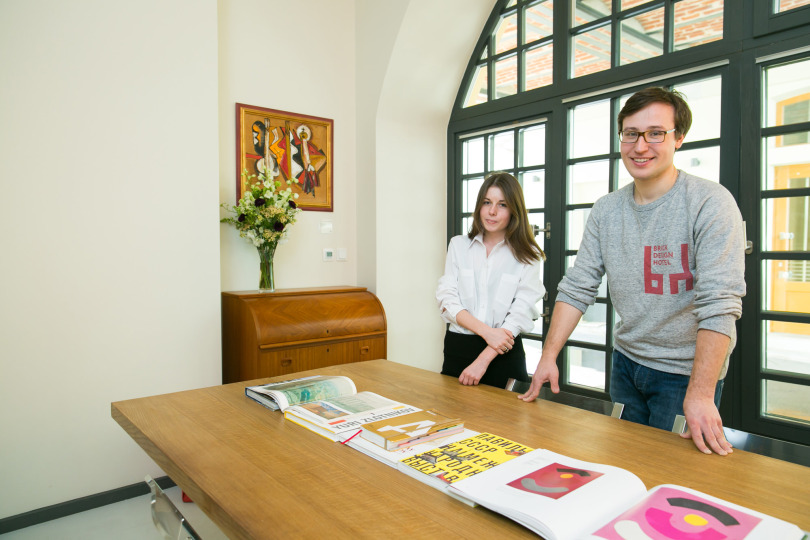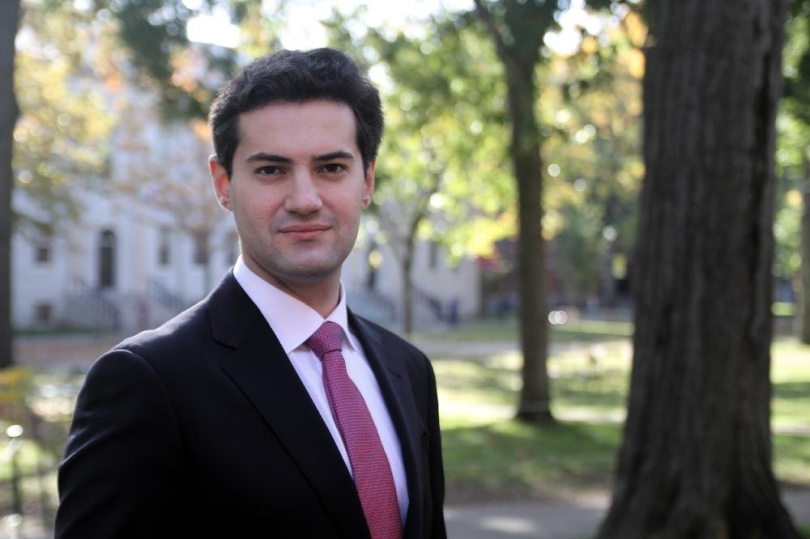
'We Want to Show Our Guests All the Best Russia Has to Offer'
For many foreigners, Russia is still considered a region of extreme tourism. HSE graduates Anastasia Efimova and Alexei Chichvarin opened up the Brick Design Hotel on Myasnitskaya Street not only as a business, but also as a project aimed at changing the stereotypes that tourists have about Russia. In the latest edition of Success Builder, Anastasia and Alexei talk about how easy it was for them to start a business after graduating from HSE, what is complicated about reconstructing a historic landmark, why foreigners like farm products for breakfast, and how to benefit during times of crisis.

ICEF Graduate Receives PhD from Harvard
Vladimir Mukharlyamov graduated from ICEF in 2008, before completing an MA at the London School of Economics, and a PhD at Harvard University. In spring 2016, Vladimir defended his PhD thesis at Harvard, and in August he takes up his post as professor in finance at Georgetown University.
In-depth Training in Applied History at HSE St Petersburg
David Damtar from Ghana and Samrat Sil from India are both pursuing Master’s degrees in Applied and Interdisciplinary History at HSE St Petersburg. HSE student Julia Nikolaenko talked with them about their academic backgrounds, reasons for choosing HSE, and impressions of life in Russia.
Progress and Excitement – SNU’s Programme in Moscow
The SNU programme (Seoul National University) was held in Moscow for the second time as part of HSE’s Summer University programme. This time, five groups of Korean students came to study Russian, three of which began studying from an absolute beginner level, with the other two groups having already studied it at home in Seoul.
British Humour and Global Politics
Beginning with the 2016-2017 academic year, the undergraduate programme in Political Science at HSE St Petersburg is changing its focus by not only updating the content of the curriculum but also changing the name to Political Science and World Politics, which reflects these substantial changes, but also becoming a truly international in the sense of its teaching staff. Dr Ian Ferguson, a Scottish expert on international relations, will be joining the team of political scientists at HSE St. Petersburg.
.jpg)
Ageing Can Drive Progress
Twenty years from now, the number of retired persons worldwide will have grown by 600 million, almost double the current number. Life expectancy will have increased, bringing new economic challenges. Yet the growing number of seniors can also stimulate important breakthroughs in medicine, biotechnology, nanotechnology, cognitive sciences and robotics, according to the report 'Global Population Ageing and the Threat of Political Risks in the Light of Radical Technological Innovation in the Coming Decades.'
‘These are the People Who Will Shape the Agenda in the Humanities’
The first Moscow-Tartu School in Digital Humanities has taken place at the Leo Tolstoy House and Museum in Yasnaya Polyana. The school‘s aim is to create an interdisciplinary academic environment in which modern computer methods are applied to the study of texts. The school was organized by the HSE School of Linguistics, Leo Tolstoy House and Museum in Yasnaya Polyana, and the Department of Russian Literature at the University of Tartu.
MIEM Presented its Laboratory’s Works in Paris
A unique photo exhibition, ‘Russian Photographer Sergey Chelnokov’s View. Stereography, Russia and Europe, 1880 – 1917’, was held at Paris city administration as part of the Moscow Days in Paris.
Graduate School of Urbanism Students Take Part in French Summer School
This summer five students from the HSE Vysokovsky Graduate School of Urbanism participated in the second summer school Les Ateliers d’Eté, organized by the French-Russian platform D’est and the Graduate School of Urbanism in Paris and Limoges.
International Summer School on Educational Finance
The International Summer School on Educational Finance was held on July 3-10 in Beijing. The event was organized by HSE Institute of Education and the China Institute for Educational Finance Research, Peking University (CIEFR). Questions of educational financing were considered in the context of globalization and assessing students’ educational achievements.

